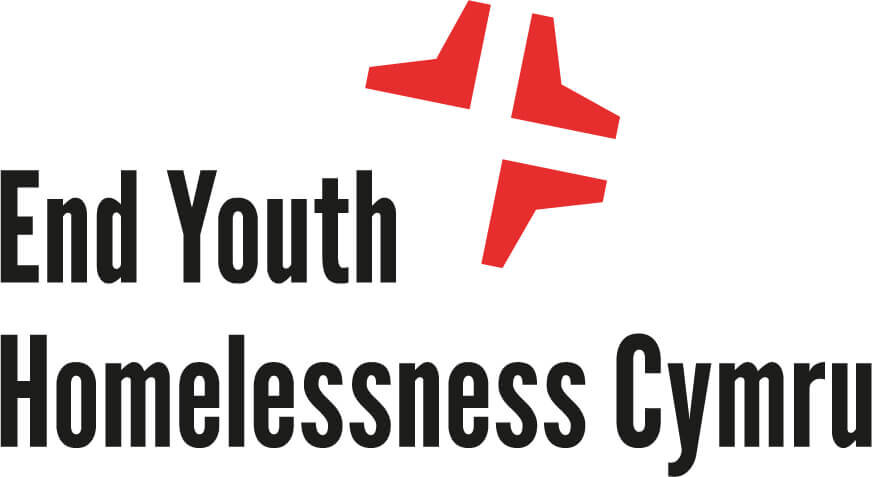
What We Do
Collective impact
“We are all in this together, with everyone playing their part. It’s about us all working together. No one person, no one organisation can achieve what we need to alone, but together in Wales, with Welsh Government, with Local Government, with business, communities, ordinary people, with the third sector, with amazing public figures willing to give their time and energy – we can!“
Frances Beecher, Chief Executive of Llamau and Chair of End Youth Homelessness Cymru
We work across sectors to ensure that we are co-creating solutions with people with lived experience of youth homelessness, service providers, researchers, policy makers, and funders. We aim to form partnerships beyond those organisations working directly with young homeless people, to increase our influence, to hear fresh ideas and to ensure that systems and structures which can perpetuate youth homelessness are addressed at a much earlier stage.
We are inspired by the Collective Impact model, adopted by so many members of the A Way Home family, which focusses on bringing together key cross-sector partners who work collectively to achieve a common or shared goal. End Youth Homelessness Cymru operates as a ‘backbone organisation’ in this model, to inform and coordinate participating organisations and agencies to effectively prevent youth homelessness.
Amplification
We believe that the voices of young people who have lived through homelessness need to not only be heard, but to drive the changes to policy and practice needed to end youth homelessness.
EYHC has an important role to play in ensuring that these experts-by-experience have the platform to influence the way that future generations of young people are treated. Our work will always amplify the voices of young people to be certain that those in power hear them and take notice. We do this through a number of different routes:
We train young people in research methods so that they can work on our research in the capacity of peer researchers
We speak to young people via already established youth fora, such as Llamau’s reps groups, or Gisda’s LGBTQ+ group.
We make contact with individuals via their youth workers, or similar, when we are looking to respond to consultations or to be led by young people on a specific issue.
We arrange opportunities for young people to speak directly to key decision makers. If you are a young person in Wales who has experienced youth homelessness and would like to be part of End Youth Homelessness Cymru, please get in touch.
Effective or Promising Interventions
If we are to achieve a different outcome for young people, we need to explore and invest in different approaches, alongside existing, effective models. A significant element of EYHC’s role, therefore, is to champion innovation, where it can be shown to be promising or effective. Through its network of coalition partners, EYHC has been involved in the establishment of a number of promising interventions, often based on learning from abroad. These include:
Ty Pride
Based on evidence from EYHC’s report Out On The Streets, which demonstrated the demand from young people for LGBTQ+ specific supported housing, a project was jointly designed by Llamau, Denbighshire Council and Viva, an LGBT youth-group. The first project of its kind in Wales, Ty Pride offers intensive, individual support specifically designed for LGBTQ+ young people aged between 16-25. The project offers both an accepting and warm environment for those living in Ty Pride itself, as well as tailored support in the community for LGBTQ+ young people in north-east Wales, with specialist mental health support and help to engage with the wider LGBTQ+ community from Viva.
The Youth Housing Choices Project
Young people’s housing needs are rarely specifically catered for and ensuring access to affordable accommodation for young people is clearly a significant step on the way to homelessness prevention. Taking inspiration from the Finnish youth housing association, NAL, the Youth Housing Choices Project is a collaboration between EYHC partners United Welsh Housing Association and Llamau, to deliver a new and youth-focussed approach to housing in Wales. With a focus on supporting young people to thrive in affordable tenancies and led by the input of young people, this is a novel and exciting approach to overcoming one of the main barriers on the journey to end youth homelessness in Wales.
Housing First for Youth
Inspired by work pioneered by colleagues in Canada and with the support of colleagues in Scotland, EYHC is supporting the delivery of Housing First for Youth (HF4Y) projects. Working with coalition partners, Cymorth Cymru, EYHC chairs a network of HF4Y providers, offering a community of practice in which learning can be shared and principles developed. The model is based on the fundamental approach developed for Housing First – a right to a home with no preconditions, resident choice, separated tenancy and support – but the principles have been amended to ensure that the model works well for young people. 6 HF4Y pilot projects are underway in Wales, offering a further alternative approach to housing for young people.
Upstream Cymru
We know that youth homelessness affects school-age children, and we know that by intervening earlier, when young people are still at school, we can have a greater preventative effect on youth homelessness.
“Evidence supports school-based prevention, especially when youth-centred and grounded in community-based partnerships, incorporating screening for the early identification of housing precarity”.
It is with this in mind that EYHC partners, Llamau, Cardiff University, Do-It Profiler, along with colleagues from three local authorities (Caerphilly, Cardiff and Rhondda Cynon Taf), are embarking on a pilot of a combined screening service and intervention proven to have significantly reduced youth homelessness.
This approach, named ‘Upstream Cymru’, is an adaptation of the Geelong Project, an Australian model, which has been shown to achieve a 40% reduction in youth homelessness and 20% reduction in the number of young people leaving school early. This model has been further trialled in both the USA and Canada. Upstream Cymru marks the first time that this model has been used in Europe.






